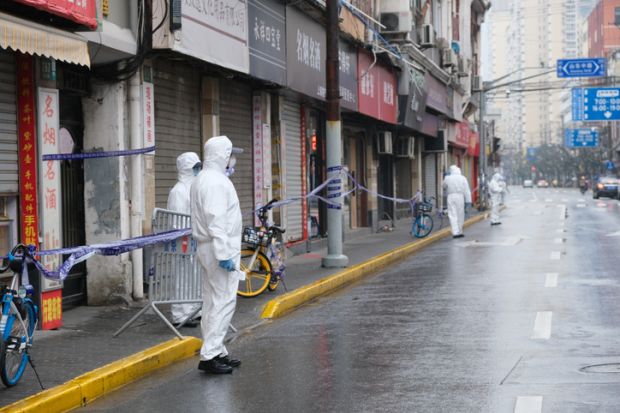China's recent pronouncements on international exams and global rankings have prompted debate among scholars about whether the country is adopting an increasingly isolationist stance.
Chinese schools cancelled this month’s international Advanced Placement (AP) exams, an alternative to the International Baccalaureate which is used widely by universities around the world. The decision caused handwringing among parents and students, who feared their missing scores could impact international college admissions.
The College Board, which runs the AP exam, said: “We’re not cancelling exams — there are just some areas where strict Covid lockdown measures are making it impossible to conduct exams."
Days before, three Chinese institutions, Nanjing University, Renmin University of China and Lanzhou University – members of the Project 985 initiative to boost international excellence – reportedly said they would stop participating in international rankings.
According to Times Higher Education’s World University Rankings, Lanzhou University has never been ranked, while Nanjing University submitted data as usual this year. Even so, the political discourse does seem to point towards China eschewing international ties. In a recent visit by Chinese president Xi Jinping to Renmin, he called on the country's universities to be “deeply rooted” in China, according to national media.
“Building a world-class university with Chinese characteristics would not work by blindly following others or simply copying foreign standards and models. It requires blazing a new path instead,” Mr Xi said.
David Zweig, an emeritus professor at the Hong Kong University of Science and Technology, worried that recent moves could set China on a more isolationist path in research and higher education.
He said it was concerning that the AP exams had been called off. “It would not surprise me if in the current climate, Xi decided to try to limit where Chinese students can go,” he said, adding that China has done this in the past.
Other scholars were reluctant to interpret exam cancellations as part of a broader plan.
“It’s too early to put forward political motivations as the reason behind the decision,” said Ewan Wright, an assistant professor at the Education University of Hong Kong, who noted that tests have not been called off at all schools.
“Cancellations and postponements of examinations are readily explained in terms of China’s Covid-19 strategy,” said Simon Marginson, professor of higher education at the University of Oxford, who said he’d seen “no evidence whatsoever to suggest that China is engineering blockages or constraints” on foreign study.
Still, Professor Marginson said he would be watching to see if more universities followed in stepping away from global rankings.
“My impression has been that top [Chinese] research universities continued to value both international publishing, and their global standing…However, a significant withdrawal from global rankings would indicate an important shift,” he said.
Professor Marginson noted that a 2020 decision by Beijing to no longer require Web of Science papers for purposes of appointment and promotion was a “sign that the international standard had become less important, at least in the eyes of government”.
While he cautioned against prematurely reading into the tea leaves, he said a strategic change “could be interpreted in several ways”.
“One is that China is turning inwards. A second is that there are signs in some countries that Chinese students are less welcome, perhaps due to geopolitical tensions. A third is that the use of international benchmarks is less strategically significant than before, because in important areas of university-based science and technology, China has now ‘caught up’ to Western Europe and North America.”
Futao Huang, a professor at the Research Institute for Higher Education at Hiroshima University, noted that China had already taken measures to “prevent the so-called westernisation – [or] Americanisation – of Chinese scholarship”.
But he predicted that Beijing would remain broadly open to academic exchange – particularly in humanities and social sciences – to keep academia strong.
“The Chinese government knows…quite well that China could benefit more from collaborating with advanced Western countries in science and technology,” he said.
“I don't think the Chinese government would develop or implement any strategies to completely stop academic and cultural exchanges with developed Western countries because it is ultimately harmful to China’s ambitious goals, for China's HE and research, and students.”






